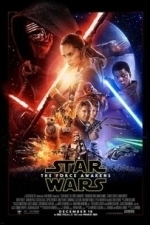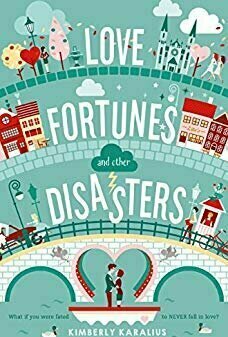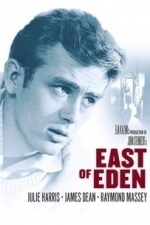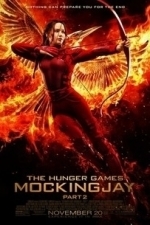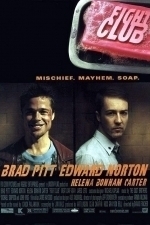Matthew Krueger (10051 KP) rated Star Wars: Episode VII - The Force Awakens (2015) in Movies
Jun 3, 2020
Case 1- Introducing A Core Trio, you have Rey, Finn and Poe. In ANH, you have Luke, Leia and Han.
Case 2- Rey's beginning. Some one who is lonely, raised in the desert and finds a droid that has important infomation and that sets off the beginning of the adventure. Sounds like Luke to me, cause it is.
Case 3- The Droid Holds The Secret Clue To Everything Important. In this case, BB-8 is holding important infomation on the whereabouts on to find Luke.
Hmm R2-D2, secret message from Leia to Obi-Wan Kenobi, Luke, the farmboy whose future as a Jedi would save the Rebellion and the galaxy, is led to his Jedi. Intresting right.
Case 4- Jakku And Tatooine. Jakku is basically Tattooine. Its where the main charcter is from, where the story begins, where the main charcter finds the droid and where the adventure begins.
Case 5- Starkiller Base And The Death Star. Basically Starkiller Base is the Death Star. The First Order's Starkiller Base is just a complete rip off of Darth Vader's Death Star. While the Starkiller Base can inflict much more damage than the Death Star, it's basically the same weapon. A has basically the same weak point.
So basically what Im saying is that The Force Awakens is a copy & paste of A New Hope.
The plot: Set 30 years after Return of the Jedi, The Force Awakens follows Rey, Finn, Poe Dameron, and Han Solo's search for Luke Skywalker and their fight in the Resistance, led by General Leia Organa and veterans of the Rebel Alliance, against Kylo Ren and the First Order, a successor to the Galactic Empire.
I remember seeing this film opening day at 9:15am on Friday. With a packed theater, every seat was full and that was a excellent experience. Seeing it with a crowd full of star wars fans was epic and would do it again.
Its fun, entertaining and overall a excellent, phenomenal movie. Bringing us a new star wars movie after the awful prequels. The Force Awakens brought us fans a new hope after the disappointed and awful prequels. A new hope that didnt last long, but i will get to those soon. But for now this review.
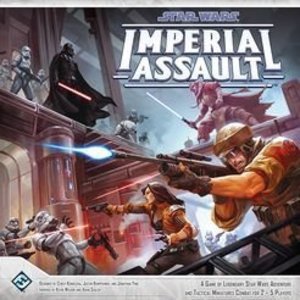
Star Wars: Imperial Assault
Tabletop Game
Star Wars: Imperial Assault is a strategy board game of tactical combat and missions for two to five...
Boardgames StarwarsGames MiniatureGames
Kara Skinner (332 KP) rated Love Fortunes and Other Disasters (Grimbaud, #1) in Books
Sep 10, 2019
For Fallon Dupree, a spinster fortune is just another reason that she’s an outcast in Grimbaud High School. With her parents and brother all strict inspectors in the clothing and restaurant department, Fallon leads a high quality life that quickly gets her branded as a snob. Not ready to give up on love quite yet, Fallon joins a rebellion to overthrow Zita’s charm shop and take back their own fortunes. Much to her surprise, so does her next door neighbor, Sebastion, who is also the high school’s heartbreaker.
Okay, if you’re following me on Twitter, then you already know I like this book. It’s adorable and sweet. I am a bit of a sucker for modern fairy tale towns like Grimbaud is. Fallon is a really good character, even though I don’t really like her parents. I mean really, controlling much? Her brother is pretty cool, though.
I actually like Sebastion’s character. Player love interests can either be complete jerks or be really hot, and Sebastion is definitely hot. Unlike the love interest in The Boy Next Door, the teen romance I’m reading now, Sebastion isn’t a complete douche to girls, even though he does date around. He is really funny and I like the chemistry between him and Fallon a lot.
What I didn’t like about this book was how a lot of them just gave up. I mean, if I was in the Spinster Villa, I would be over at the Bachelor Villa all the time. Even if it wasn’t true love, it would be nice to have a fling, right? They are all lonely. I can’t see the villas staying segregated because of a piece of ticker tape they got a few decades ago, even if the fortunes always come true. Worst case scenario there’s always friendship, right? And some of those love fortunes definitely didn’t have a life sentence. You will get a terrible rejection in the near future? That could have been my fortune in the sixth grade. Now I’m dating an incredibly sweet guy who loves me and is adorable and sexy. Too much of this town gave up way too quickly. At least Ms. Ward tried.
I still give this book four out of five stars. Romantics out there will definitely enjoy it, and every teenaged girl feeling unlucky in love should read it.

Tapatalk Pro
Social Networking and News
App
Tapatalk Pro is strip down version of Tapatalk - only for the forum fanatics - those who like old...

Beat Fever: Music Rhythm Game
Games and Entertainment
App
Get your fingers ready for the ultimate music game! Beat Fever is an easy to learn, hard to master...
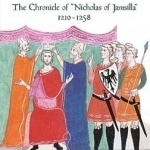
Frederick, Conrad and Manfred of Hohenstaufen, Kings of Sicily: The Chronicle of Nicholas of Jamsilla 1210-1258
Book
In the decade following the death of Frederick II in 1250, his sons Conrad and Manfred had to defend...
Robert Englund recommended East of Eden (1955) in Movies (curated)
Movie Metropolis (309 KP) rated The Hunger Games: Mockingjay - Part 2 (2015) in Movies
Jun 10, 2019
With the second instalment, Catching Fire, proving to be the best in the series, expectations for the finale, Mockingjay Part 2 were incredibly high. But is this the end we all wanted, and more importantly deserved?
Mockingjay Part 2 picks up immediately after the events of Part 1, as Jennifer Lawrence’s Katniss Everdeen recovers from a vicious attack by her friend and on-off lover Peeta, played by Josh Hutcherson in a troubled and career-best performance.
With Katniss becoming a symbol of hope in a time of dictatorship, Lawrence marches with her friends and allies to storm the Capitol and overthrow the tyrannical President Snow, a deliciously evil Donald Sutherland.
The catch? Snow and previous Game makers have booby-trapped the Capitol with a range of sadistic tests trying to stop the rebellion in its tracks.
The Hunger Games has become renowned for a fantastic supporting cast that includes talent like Elizabeth Banks, Woody Harrelson, Stanley Tucci, the late Philip Seymour Hoffman and Julianne Moore, with the latter being particularly memorable.
Unfortunately, as is often the case with large Young Adult franchises, these fantastic actors are lost somewhat as director Francis Lawrence tries to tie up all loose ends with the main teens; Jennifer Lawrence, Josh Hutcherson and Liam Hemsworth.
The aforementioned three have been part of a love triangle so convoluted it’s difficult to remember who is in love with who, but thankfully this takes a back seat to the action, though each of the three brings enough acting credibility to make the more romantic elements bearable.
Moreover, Mockingjay Part 2 pushes the boundaries of the much-maligned 12A certificate. This is by far the most harrowing and bleak of the four films and none of its predecessors were exactly a ray of sunshine. The characters are pushed to breaking point as the realisation of the Capitol’s evil fully sinks in and the inevitable loss of life is both thrilling and utterly devastating.
The special effects have been rightly ramped up for this final instalment with District 13 and the Capitol looking truly stunning. Each of the action sequences is filmed with such confidence and this shows off the exceptional sets much better than the handy cam that plagued the first film.
Unfortunately, the need to fill a movie nearly 140 minutes in length has led to a tone that occasionally jars and drags a little too frequently. This was a problem with Part 2’s predecessor and whilst the idea to split the final book into two films works better here, the balance is still not quite right and still reeks of money-making.
However, each of the action sequences are edge of the seat stuff with an underground sewer providing the film’s most pulse-racing and dramatic scenes. There’s a whiff of Ridley Scott’s Alien in Francis Lawrence’s direction throughout this extended set piece.
Overall, The Hunger Games series has ended on a high. From its beautiful cinematography to an exceptional main and supporting cast, director Francis Lawrence, who has been with the series since Catching Fire, has managed to craft a harrowing end to a group of films whose influence will be felt for many years to come.
https://moviemetropolis.net/2015/11/22/an-emotional-goodbye-the-hunger-games-mockingjay-part-2-review/
Sophia (Bookwyrming Thoughts) (530 KP) rated Last of Her Name in Books
Jan 23, 2020
<h2><em><strong>Last of Her Name</strong></em><strong> hits the ground running.</strong></h2>
Khoury's takes us on an adventure through the Belt of Jewels when the Direktor and the Union shows up on Stacia's planet and she is accused of being Princess Anya Leonova, a member of the royal family supposedly killed years ago by the Direktor. With the help of Pol, Stacia escapes from the home planet she's known throughout her life, leaving Clio behind with the others to be taken away.
<h2><strong>Friendships!</strong></h2>
I love the childhood friendship between Pol, Clio and Stacia told throughout the book with various memories as Stacia makes it her one mission to rescue Clio from the Direktor no matter what it takes among the chaos her life becomes. I enjoyed the backstory and learning more about them, and felt the memories were a great balance with the fast-paced action of the book in addition to being a driving force for Stacia.
While <em>Last of Her Name</em> primarily focuses on the strong friendship already developed in Stacia's childhood, Stacia and Pol create new friendships on the run as well. The two cross paths with Riyan shortly after escaping, a tensor from a distant planet who is also searching for someone he cares about. Although the three of them have a rough start, they develop a bond throughout the book.
<h2><strong>Identity!</strong></h2>
Stacia goes about her life normally until the Direktor shows up, forcing her to run away from all she knows. As she and Pol get chased across the galaxy, Stacia is trying to figure out who she <em>really</em> is as a person: is she Anya or is she Stacia? How can she accept a new part of herself without losing the self that she has always known about? In addition to figuring out who she is, Stacia is also battling her growing feelings for Pol, and those two are simply adorable as they circle around their feelings.
<s>This is why I have a soft spot for friends to lovers tropes I'm just saying.</s>
<h2><strong>Family and Community!</strong></h2>
There's not much I can say about family and community without giving spoilers away (can't have that!), but I really appreciated some of the gestures from Stacia's family and community. But there is so much different family drama, I would have had one too many popcorns if I could just watching the whole story unfold and come together. SO. MUCH. TEA. 🍵
<h2><b>Everything seemed a little too easy.</b></h2>
The only issue I had with this one is how everything seems a little too easy for Stacia and her companions. While there is a lot of tension throughout and much action, they get out of trouble with few hiccups. But overall, I enjoyed <em>Last of Her Name</em>. We've got royalty, family, friendship - all set in space with a rebellion.
<a href="http://bookwyrmingthoughts.com/last-of-her-name-by-jessica-khoury/"; target="_blank">This review was originally posted on Bookwyrming Thoughts</a>
DaveySmithy (107 KP) rated Fight Club (1999) in Movies
Dec 3, 2024
The story is told through the eyes of the unnamed narrator (Norton), a white-collar worker trapped in a monotonous life. Crippled by insomnia and a desperate longing for purpose, his mundane existence takes a dramatic turn when he crosses paths with Tyler Durden (Pitt), a magnetic, anarchic soap maker. Together, they form the titular fight club—a raw, underground outlet for men to vent their frustrations by literally beating them out of each other. What begins as an unconventional form of therapy soon spirals into a chaotic and dangerous movement, leading the narrator down a path of self-destruction and shocking revelations.
Edward Norton delivers a career-best performance as the narrator, capturing the character’s descent into madness with unnerving precision. His dry wit and self-deprecating humor make him relatable, even as his actions become increasingly unhinged. But it’s Brad Pitt who truly steals the show as Tyler Durden. Charismatic, unpredictable, and dripping with swagger, Pitt embodies the fantasy of rebellion and freedom that so many viewers secretly crave. Together, the two actors create a mesmerizing dynamic, with Tyler representing everything the narrator wants to be—and fears he might become.
Helena Bonham Carter rounds out the core cast as Marla Singer, a nihilistic wildcard who both disrupts and grounds the narrator’s chaotic journey. Her chemistry with Norton is as compelling as it is unconventional, adding a layer of emotional complexity to an otherwise hyper-masculine narrative.
What sets Fight Club apart is its fearless critique of modern society. It skewers consumerism, masculinity, and the emptiness of the so-called “American Dream,” forcing viewers to confront uncomfortable truths about their own lives. Fincher’s direction is sharp and unrelenting, with the film’s gritty visual style perfectly complementing its nihilistic tone. The innovative use of CGI, fourth-wall-breaking moments, and hauntingly effective cinematography by Jeff Cronenweth keep the audience on edge, unsure of what to expect next.
Yet, Fight Club is not without flaws. Its provocative themes can feel overly blunt at times, and some viewers might find its violent and anarchistic undertones alienating. Additionally, while the infamous plot twist is masterfully executed, it risks overshadowing the film’s deeper messages upon rewatch.
The soundtrack, anchored by The Dust Brothers’ industrial score and the unforgettable use of The Pixies’ “Where Is My Mind?” in the climax, elevates the film to iconic status. These elements, combined with razor-sharp dialogue and endlessly quotable lines, solidify Fight Club as a masterpiece of late-90s cinema.
While it may not be for everyone, Fight Club is a bold, daring, and unforgettable experience that challenges societal norms and forces introspection. It’s an audacious 9/10 film—flawed but brilliant, much like the chaos it portrays.
